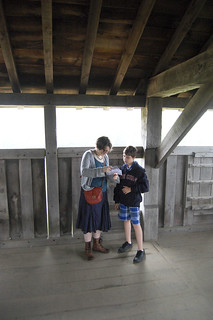There's been a lot of news stories lately about how technology companies like Google, Apple, Microsoft and Yahoo! may or may not be giving your data to the #NSA as part of a project called #PRISM. They deny it, news outlets confirm it and it's hard to tell what's real and what isn't real.
Whatever your political views, or whether you think government entities should be able to snoop on your phone and electronic communications, it's hard to argue that the sheen hasn't come off the consumer Internet industry. As the economist Umair Haque said earlier today:
15. There is nothing more lethal to an economy than the idea that people have nothing more to contribute than "information".
— umair haque (@umairh) June 7, 2013
The large online services have created a world where, despite the breadth of software's possibilities, the scope of our communications are limited. On Facebook, you can post status updates, links, photos and videos; on Google+, you can post status updates, links, photos and videos. What if you want to post a game, or an interactive multimedia presentation, or a live graph connected to real-time data?
Those things are hard for centralized services, because they've got to concentrate on common denominator forms of content - like status updates and photos - but they're much easier when you control your own site. If you could install your own publishing app as easily as an app on your phone, and then add new ways of posting stuff to that site just as easily, suddenly you would be able to make your presence on the web your own. And you could let other people in - you could create online communities that fit your needs, rather than bending your communities around the limits of a Facebook group or a mailing list.
That's what inspired me to start working on idno, and these are some of the ideas that inspired other people in a community of developers called the #indieweb to build their own sites and platforms. We don't believe in treating people as data points; we believe in user-centered software for individuals. Software that you control.
#idno will be available to install onto your own site later this month; a turnkey hosted version will follow. In the meantime, if you're a developer, you can check out Idno on GitHub, or some of the other IndieWeb projects out there.
Won't you join us?


 Share this post
Share this post
